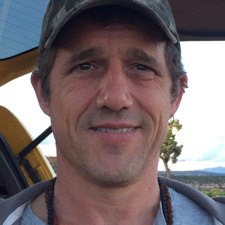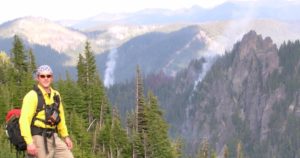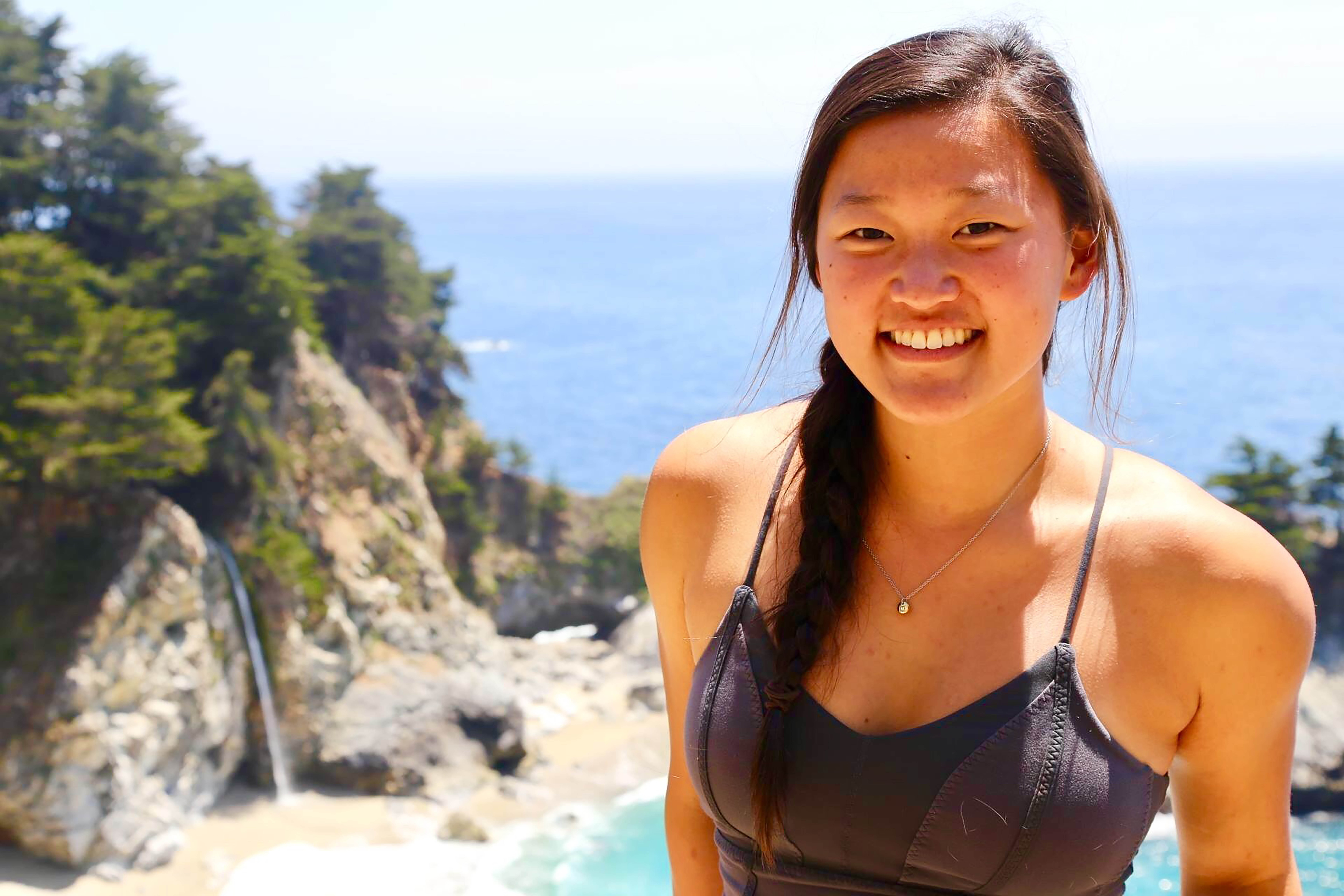6 Questions We Asked the New Nevada Network of Fire Adapted Communities Coordinator
April 9th, 2020
The Living With Fire Program works in partnership with the Nevada Network of Fire Adapted Communities to educate residents and communities about wildfire science and how to create ignition-resistant communities and landscapes resilient to wildland fire. The Network recently hired Marc Titus as their new executive coordinator. We chatted with Marc about his career as a wildland firefighter, prevention officer, entrepreneur and psychology graduate student. He shared how his background has informed his vision for the network and why he was compelled to return to a career in wildland fire mitigation after a five-year break from public service.
What does your position entail as the Nevada Network of Fire Adapted Communities executive coordinator?
The executive coordinator position entails keeping momentum going throughout all facets of The Network. My role is to identify network resources and place them into the hands of network members that need those resources. It’s overseeing and implementing a statewide program that addresses local community issues in regard to wildfire mitigation. Most importantly, it is to provide consistent statewide messaging to focus on the problem and the solutions at hand.
What is your background, regarding your education and prior work experience?
I received a Bachelor of Science from the University of Montana with a major in recreation management and a minor in psychology. I continued my post-baccalaureate studies in forest resource management and worked as a wildland firefighter. I became the regional fire prevention coordinator for the state of Washington’s Department of Natural Resources. There I assisted in the implementation of Firewise Communities USA program in the region and state. In 2006, I won the Inaugural National Firewise Leadership award. I then worked for the forest service’s Southwest Area Type 1 Incident Management Team as the aviation manager until 2012.
In 2012, I took a sabbatical in Arizona and started the Sedona Yoga Festival. The festival sponsors annual yoga for [post-traumatic stress disorder] training. I have a strong interest in the mental health of wildland firefighters — that’s why I’m getting my master’s degree in psychology. In 2019, I started a Master of Science in Psychology at Arizona State University and was alerted to this position. It dovetailed into my desire to assist communities in addressing the issues they face in terms of emergency management and emergency response. I hope to better understand human behavior and psychology concepts to guide decision making processes for helping communities understand and mitigate their wildland fire problem. I’m leveraging my master’s degree toward community psychology, the aspect of helping communities become more resilient.
One of the reasons why I’m really excited to work with [University of Nevada, Reno] Extension in implementing education programs is that I will be able to support and encourage research in this field. There is not a lot of psychology research in the arena of wildland fire prevention, education, community disaster preparedness and mitigation. Once I complete my master’s degree, I am another resource to conduct research in this sub-field.
The NNFAC executive coordinator position perfectly aligns with my studies in psychology. When the position came up, I thought, “This is perfect. It takes my psychology interest, my firefighting experience, my fire prevention experience and my experience working with communities at risk and puts it all together.”
What inspired you to pursue a career in wildfire preparedness?
I started fighting fire and being involved in fire management from a forestry perspective in 1991. I’ve been an on-and-off wildland firefighter since then, so I have many years of wildland firefighting experience. When I was involved with Washington [Department of Natural Resources], I was a firefighter first and a prevention officer second. What inspired me to apply for this NNFAC job was because I had been out of it for five years. I turned on the news and I saw the evacuations of Paradise. I saw the aftermath of that — I saw all of that going on. I said to myself, “Marc, you have skills in these areas. You have new knowledge, expertise and schooling behind you. It’s now or never.” If my skills are ever to be utilized from preventing that from happening again, it’s now.

As a firefighter, I have been the guy who has said, “You have five minutes. Let’s go!”. As a firefighter, I have been the guy at public meetings telling community members who have evacuated, “No, we don’t know if your house survived.” I have been the guy who has looked people in the eye and said, “No, your house didn’t survive.” I have been the guy that has interfaced with communities in that negative aspect and that’s a very challenging role to have. It affects firefighters personally and as a result of those experiences, I've decided that I’m going to use my time and energy to take all of my experiences and help communities so they have a better chance. I was watching the news and seeing what was going on in California with Paradise, the Woolsey Fire and Australia. I know this is preventable — I know that to be a fact. The science shows that if a home doesn’t ignite it doesn’t burn. And I know how to communicate that science. I have shown a tremendous amount of efficacy in my coordination with communities. I was recognized by the [National Fire Protection Association] with a National Firewise Leadership award. I decided to go back into the field to help communities at risk.
What are common community preparedness problems you’ve experienced in high fire hazard locations?
The biggest hurdle that communities face is recognizing that it can happen to them. For the most part, in my experience it has been that the general malaise in community members is the idea that “it’s not going to happen to me.” One of the things that I often say is, “It’s not a matter of if, it’s when.” When it happens, if you’re not prepared it can go in the wrong direction. If you are prepared individually and as a community, then it can go a lot better. And not only is it going to go a lot better for you as a homeowner and as a member of the community, but it’s also going to go a lot better for the firefighting resources that are tasked with making sure that no one gets killed, that homes don’t burn and that community safety is taken care of. I've been on both sides of the fence. I’ve been the firefighter that’s gone into wildland urban interface communities, and I've been the incident commander on wildland urban interface initial attack fires. I know how crazy it can be when communities aren’t prepared. So, it’s a duplicitous message. I want to cover the firefighter’s back and I want to cover the community’s back. I want everyone to come out of this alive.
What are your near future goals for The Network?
The one-year goal is to re-engage the network and leadership of the NNFAC and the [Fire Adapted Community] chapters. The two-to-three-year goal is to implement the program throughout the state and to see a strong rise in recognized FAC chapters. That will indicate success in the “on the ground” strategies of the network. The three-to-five-year goal is to develop national attention on how the state of Nevada implements a cooperative and cohesive wildfire management strategy that includes community participation. The goal is for the state of Nevada to be an example for the best management practices when it comes to implementing a fire adapted community network in a state.
What is your long-term vision for The Network?
My vision is that through The Network, we have adequately provided support for any community in the state of Nevada to become fire adapted.
If you're interested in contacting Marc you can email him at mtitus@forestry.nv.gov. To learn more about the network visit the Nevada Network of Fire Adapted Communities

Lauren Im is the Wildfire Outreach Coordinator Assistant for the Living With Fire program. She is serving a term with the Great Basin Institute as an Americorps State and National Program volunteer. She earned her Bachelors of Science in Biology and is currently obtaining a Geographical Information Systems certificate. She also enjoys rock-climbing, skiing, and being with friends and family.
